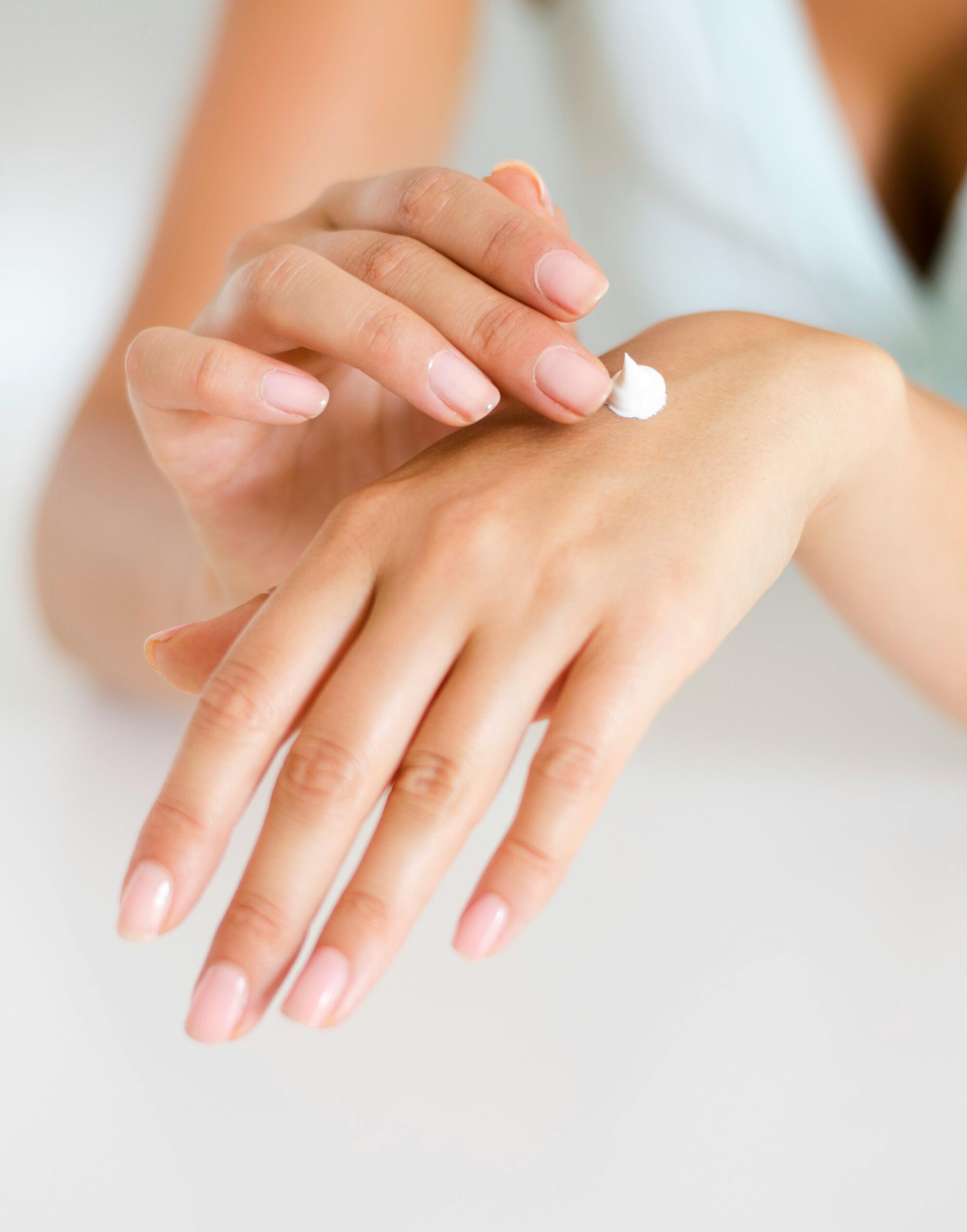BEAUTY
The Ultimate Guide to Using Oils for Acne Treatment

Acne is a common skin condition that affects many people, often causing frustration and a lack of confidence. While numerous treatments are available, oils, particularly natural ones, can offer effective solutions for managing acne. This guide will explore various oils that can help treat acne, with a focus on tea tree oil, bio oil, and other essential oils.
Understanding Acne
Before discussing how oils can help treat acne, it’s essential to understand what acne is. Acne occurs when hair follicles become clogged with oil, dead skin cells, and bacteria. This can lead to whiteheads, blackheads, and pimples. Factors contributing to acne include hormonal changes, diet, stress, and skincare products.
Oils can provide several benefits for acne-prone skin. They can help regulate oil production, reduce inflammation, and offer antibacterial properties. Natural oils for acne treatment often contain nutrients and compounds that promote skin healing and improve overall skin texture.
Tea Tree Oil for Acne
Tea tree oil is derived from the leaves of the Melaleuca alternifolia plant, native to Australia. This oil is known for its antimicrobial and anti-inflammatory properties, making it a popular choice for treating acne.
How to Use Tea Tree Oil for Acne
- Dilution: Tea tree oil is potent and should be diluted with a carrier oil, such as coconut oil or jojoba oil, before applying it to the skin. A typical dilution ratio is one part tea tree oil to nine parts carrier oil.
- Spot Treatment: After diluting, use a cotton swab to apply the mixture directly to the affected areas. This method helps target specific blemishes without affecting the surrounding skin.
- Face Mask: You can also create a face mask by mixing tea tree oil with clay or honey. Apply the mask to your face and leave it on for about 10-15 minutes before rinsing off.
Benefits of Tea Tree Oil for Acne
- Reduces Inflammation: Tea tree oil can help calm inflamed skin and reduce redness associated with acne.
- Antibacterial Properties: It can fight acne-causing bacteria, helping to prevent future breakouts.
- Oil Control: Regular use of tea tree oil can help balance oil production in the skin.
Tea Tree Oil Acne Precautions
- Patch Test: Before using tea tree oil, it’s wise to conduct a patch test. Apply a small amount of diluted oil to a discrete area of your skin to check for any adverse reactions.
- Avoid Sensitive Areas: Be cautious when applying tea tree oil near sensitive areas, such as the eyes or broken skin.
Bio Oil for Acne
Bio oil is a skincare product formulated with a blend of oils and vitamins, primarily used to improve the appearance of scars and stretch marks. While it is not specifically marketed for acne, it can benefit acne-prone skin when used correctly.
How to Use Bio Oil for Acne
- Daily Moisturizer: You can apply bio oil as a daily moisturizer for your entire face or just the affected areas. This helps keep the skin hydrated and may improve its texture.
- Mix with Other Treatments: Bio oil can be combined with other acne treatments, such as topical creams or gels. This combination can enhance the effectiveness of both products.
Benefits of Bio Oil for Acne
- Hydration: Keeping the skin moisturized can help prevent excess oil production, which often leads to breakouts.
- Scar Improvement: If you have post-acne scars, bio oil may help reduce their appearance over time.
- Soothing Properties: The ingredients in bio oil can help soothe irritated skin and promote healing.
Bio Oil Acne Precautions
- Oily Skin Caution: If you have very oily skin, it’s best to use bio oil sparingly, as it may clog pores for some individuals.
- Patch Test: As with tea tree oil, perform a patch test to ensure your skin reacts well to bio oil.
Essential Oils for Acne
Several other essential oils can be beneficial for treating acne, including:
- Lavender Oil: Known for its calming properties, lavender oil can reduce inflammation and promote healing.
- Rosemary Oil: This oil has antibacterial properties and can help unclog pores.
- Peppermint Oil: It can provide a cooling effect and help reduce redness and inflammation.
How to Use Essential Oils for Acne
- Dilution: Just like tea tree oil, essential oils should always be diluted with a carrier oil before applying to the skin.
- Facial Steams: Add a few drops of your chosen essential oil to a bowl of hot water. Lean over the bowl with a towel over your head to trap steam, allowing your skin to absorb the benefits.
- Mix with Your Moisturizer: You can also add a drop of essential oil to your moisturizer or serum to boost its acne-fighting properties.
Benefits of Essential Oils for Acne
- Natural Antibacterial Properties: Many essential oils can help eliminate bacteria that cause acne.
- Promotes Healing: Essential oils can support skin healing and reduce the appearance of scars.
- Reduces Oil Production: Certain oils can help balance oil production in the skin.
Essential Oils for Acne Precautions
- Always Dilute: Essential oils are highly concentrated and should always be diluted to avoid irritation.
- Be Aware of Allergies: Some individuals may have allergies to specific essential oils. Always perform a patch test before using.
Creating Your Acne Treatment Routine
Start your routine with a gentle cleanser to remove dirt, oil, and makeup. Look for a product that won’t strip your skin of its natural oils. After cleansing, apply your chosen oil (tea tree oil, bio oil, or an essential oil) to the affected areas. Remember to dilute as needed.
Follow up with a lightweight, non-comedogenic moisturizer to keep your skin hydrated. This helps maintain a healthy skin barrier and prevents excessive oil production. If you’re using oils that can make your skin more sensitive to the sun (like tea tree oil), be sure to apply sunscreen during the day to protect your skin.
Using oils for acne treatment can be an effective approach for many people. With options like tea tree oil for acne, bio oil for scarring, and various essential oils, there are several ways to support your skin’s health. Each oil has unique properties that can help reduce inflammation, control oil production, and promote healing.
While oils can be a valuable addition to your acne treatment routine, it’s essential to listen to your skin. What works for one person may not work for another. Always start with a patch test and consult with a dermatologist if you have persistent or severe acne. By taking the time to find the right products and treatments, you can manage acne effectively and improve your skin’s overall health.
BEAUTY
How Self Tanning Lotions Transform Your Skincare Routine

A glowing tan no longer requires sun exposure thanks to self tanning lotions. Designed to enhance your skin tone safely, self tanning lotions deliver a bronzed look without the risks associated with UV rays. Whether you prefer a light glow or a deeper bronze, a quality self suntan lotion offers flexibility, control, and consistent results.
Unlike traditional tanning methods, modern formulas focus on skincare benefits as much as color. Many self tanning lotions now include hydrating and conditioning ingredients that improve skin texture while developing a natural-looking tan. This makes self suntan lotion a reliable option for maintaining radiant skin throughout the year.
How Self Tanning Lotions Work on the Skin
Understanding how self tanning lotions work helps you achieve better results. These products interact with the outer layer of your skin to gradually develop color, allowing for a smooth and even finish. Using self suntan lotion consistently ensures a balanced tone without streaks or patchiness.
Premium brands such as self tanning lotions Sun Labs are formulated to suit a wide range of skin tones. Their advanced blends help minimize orange undertones while delivering a realistic, sun-kissed appearance. Choosing self suntan lotion Sun Labs products gives you professional-quality color with easy at-home application.
Benefits of Using Self Suntan Lotion Instead of Sun Exposure
One of the biggest advantages of self tanning lotions is safety. Since they do not rely on UV exposure, self suntan lotion reduces the risk of premature aging and sun damage. This makes self tanning lotions ideal for anyone focused on long-term skin health.
Additionally, self tanning lotions Sun Labs are designed for fast absorption and minimal transfer. This allows users to enjoy their glow without worrying about stains or uneven fading. With regular use, self suntan lotion Sun Labs helps maintain a consistent tone that looks natural and refreshed.
Tips for Getting the Best Results from Self Tanning Lotions
Preparation plays a key role in maximizing the effectiveness of self tanning lotions. Exfoliating before application removes dead skin cells and creates a smooth surface for self suntan lotion. Moisturizing dry areas beforehand also prevents over-darkening.
Apply self tanning lotions evenly using circular motions, and allow the product to fully absorb before dressing. To maintain results, reapply self suntan lotion every few days and keep skin hydrated. When used correctly, self tanning lotions provide a flawless glow that fades evenly.
BEAUTY
How to have a romantic wedding ceremony in Los Angeles

A wedding in Los Angeles is a dream for many couples, a romantic event that can be arranged in a city offering many possibilities, from a choice of beautiful locations with ocean views, the city, or the mountains to simply cozy little wedding chapels in Los Angeles, where you can create an intimate atmosphere for an unforgettable wedding ceremony.
Contact Lucky Wedding Day Chapel, and you are guaranteed to make your wedding day special. Here, you can think through all the details and create the perfect atmosphere with decorations, musical accompaniment, and a florist. The secret to a romantic wedding ceremony lies primarily in choosing the right location, the place that is right for you. It is not necessary to choose large luxurious halls; you can opt for a small wedding chapel where you can customize everything to suit your chosen wedding concept.
Wedding Chapel Los Angeles
The city offers small wedding chapels with classic interiors or modern halls with minimalist designs, so you can choose based on your taste and preferences. Outdoor locations are also very popular for wedding ceremonies, offering you and your guests beautiful views of the ocean or, if you prefer, the mountains and cityscapes. Each location allows you to create a special atmosphere and adapt it to your individual desires. By contacting Lucky Wedding Day Chapel, you can count on an individual approach and a cozy wedding ceremony where everything will be done just the way you want it. Small decorative elements, string music—you can choose everything based on your wishes.
Special attention should be paid to the musical accompaniment, because if it is chosen correctly, it will set the mood for the entire wedding ceremony. The songs for the first dance or the background music at the moment when you say “I do” will remain in your memory forever, and this emotional moment will stay with you throughout your marriage.Not only music, but also the work of a photographer is important, as well as flower decorations and other details. All these moments and your wishes for organizing a wedding can be realized at Lucky Wedding Day, which will offer you a beautiful and atmospheric chapel wedding ceremony in Los Angeles depending on your wishes, for a small circle of guests, or just for the two of you. Lucky Wedding Day Chapel has everything you need for the perfect wedding ceremony.
BEAUTY
Celestial Skin: Traces of Light and Lasting Grace

Beauty, much like the cosmos, is not defined by speed but by rhythm. While modern culture urges immediacy—instant solutions, quick treatments, overnight miracles—the skin resists such commands. It evolves through cycles, responding not to pressure but to patience. Just as stars form slowly in distant galaxies, each act of self-care builds quietly until the result becomes undeniable. In this journey, the orbit of beauty is not a straight line but a continuous path circling through time, where discipline and consistency are the forces that hold everything together.
Across history, cultures revered beauty as something sacred rather than superficial. In ancient temples, minerals were ground into powders to protect and adorn; in royal courts, oils infused with herbs preserved vitality. None of these practices promised immediacy—they reflected respect for balance. Modern skincare, despite its technology and packaging, tells the same truth: there is no shortcut to resilience. Every application is a signal to the body, a reminder that strength is built gradually. What matters most is not intensity but endurance, a principle as old as the heavens themselves.
Science today echoes this ancient wisdom. Skin cells renew in cycles of weeks, hydration requires daily replenishment, and environmental protection is cumulative. Quick results may create illusion, but deep change is written only through repetition. Think of it as layering light: one beam is weak, but thousands together illuminate a sky. Skincare works the same way. Every product used, every habit repeated adds to brightness, creating the spark that grows steadily into a visible presence.
The metaphors of culture remind us of the same principle. Stories rarely glorify sudden perfection; they celebrate arcs of growth. Heroes, artists, innovators—none arrive fully formed. They emerge through persistence. Beauty reflects this arc. It is not defined by a single mask, a single treatment, or a single choice, but by the thousands of repetitions that create identity. It is the story of patience written on the surface, a narrative that becomes stronger with every chapter.
Nature, as always, provides the purest lesson. Planets orbit steadily for millennia, oceans rise and fall with the moon, and forests grow layer upon layer after storms. None of this is immediate, but all of it is enduring. Skin follows the same law. Left to extremes, it falters; nurtured with care, it flourishes. The lesson is simple: beauty that endures is beauty in rhythm with time. When aligned with that rhythm, we embody the aura, a glow that is not manufactured but revealed—an elegance that transcends trend and becomes part of who we are.
What we learn is that beauty is celestial in nature—quiet, patient, luminous. It is not a finish line, but a constellation of choices that map our story. Each trace of light is a reflection of consistency. Each layer of care is a star in its own orbit. And together they form something vast, radiant, and unshakable: not just appearance, but grace that lasts beyond measure.

 BUSINESS11 months ago
BUSINESS11 months agoBrand Visibility with Imprint Now and Custom Poly Mailers

 BUSINESS12 months ago
BUSINESS12 months agoExploring the Benefits of Commercial Printing

 HOME IMPROVEMENT11 months ago
HOME IMPROVEMENT11 months agoThe Do’s and Don’ts of Renting Rubbish Bins for Your Next Renovation

 TECHNOLOGY10 months ago
TECHNOLOGY10 months agoDizipal 608: The Tech Revolution Redefined

 HEALTH7 months ago
HEALTH7 months agoThe Surprising Benefits of Weight Loss Peptides You Need to Know

 HEALTH7 months ago
HEALTH7 months agoYour Guide to Shedding Pounds in the Digital Age

 HEALTH10 months ago
HEALTH10 months agoHappy Hippo Kratom Reviews: Read Before You Buy!

 HOME IMPROVEMENT7 months ago
HOME IMPROVEMENT7 months agoGet Your Grout to Gleam With These Easy-To-Follow Tips












